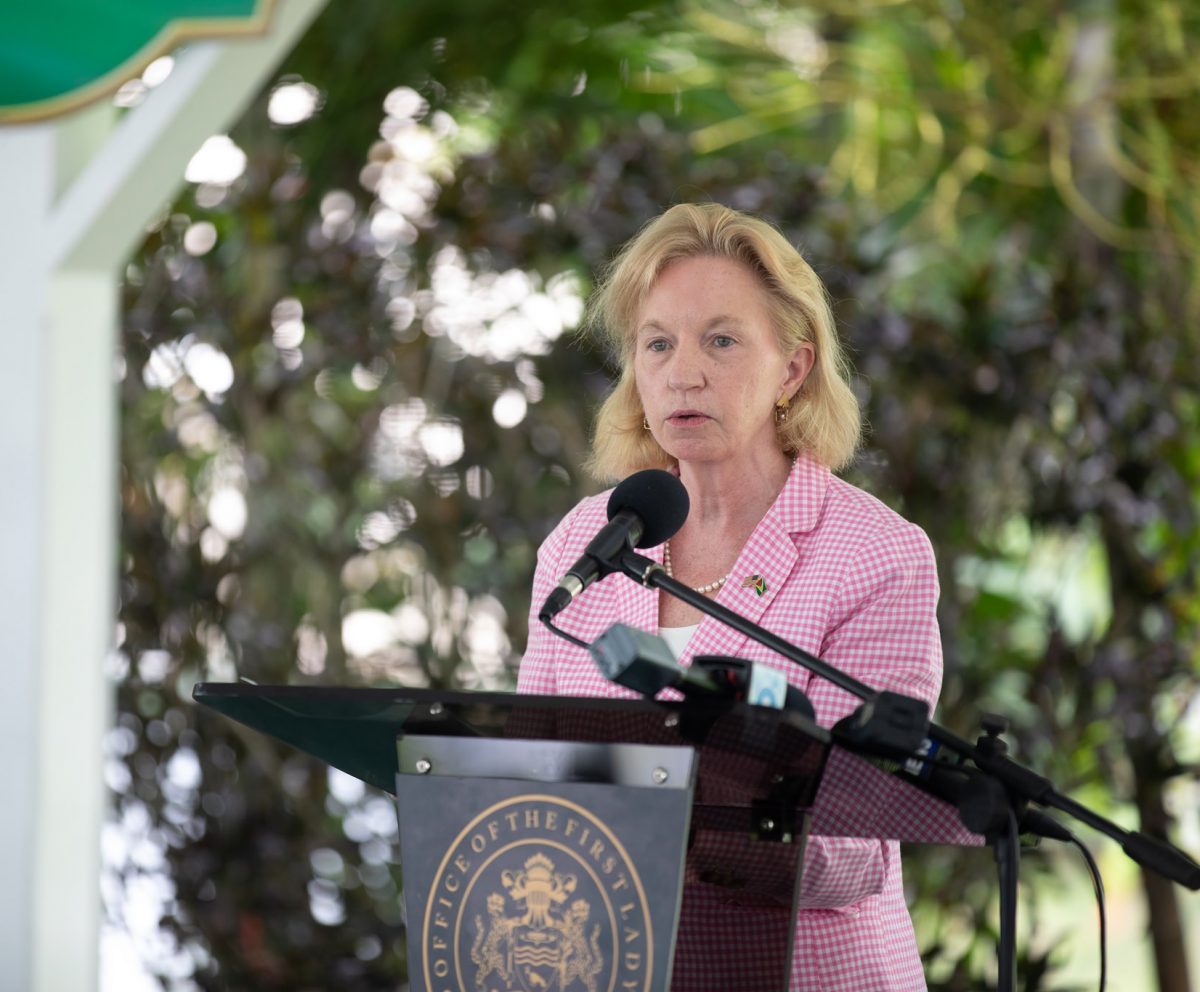The United States anticipates anti-corruption initiatives from Guyana, according to Ambassador Sarah-Ann Lynch, who says a “strong” stance will demonstrate the government’s commitment to transparent institutions that utilize the country’s resources to the long-term benefit for all Guyanese.
Ambassador Lynch made the comment in a statement to observe International Anti-corruption Day. The day is observed on annually December 9 and is aimed at highlighting the rights and responsibilities of every stakeholder in tackling corruption.
In her statement, Lynch said that governments and institutions cannot allow corruption to flourish, while adding that the construction of legislative frameworks for the promotion of transparency and combatting corruption are steps in the right direction. Additionally, the US envoy explained that the enhancement of criminal justice institutions with the power to investigate and successfully prosecute corruption is another crucial step to deter the practice.
She said that government operations should be transparent to the extent that both citizens and the media can provide oversight and hold officials accountable. In addition, Lynch noted that procurement processes that comply with international anti-corruption standards will ensure a level playing field for investors.
“Private sector actors must also answer for any role that they play in corrupt practices, and when choosing private sector partners it is advisable to choose the reputable over the most convenient. Most importantly, a robust civil society and free press are critical to holding leaders responsible for their actions,” the statement read.
The US Envoy said that International Anti-corruption Day is an annual opportunity to bring attention to the continued importance of combating corruption, ensuring accountability, and fostering transparency adding that corruption threatens security, hinders economic growth, and siphons away public and private resources around the world.
She related that US President Joe Biden is hosting a virtual Summit for Democracy that includes the participation of Guyanese President Irfaan Ali. The US, at the summit, is pressing governments to “announce meaningful commitments and initiatives, and to engage with civil society and the private and philanthropic sectors, since they play a critical role in supporting democracy, fighting corruption, and protecting human rights.”
Speaking on the work the US has been doing in Guyana, Ambassador Lynch said that the State Department’s Bureau of International Narcotics and Law Enforcement Affairs has been training and mentoring those in the criminal justice sector in an effort to build capacity to tackle corruption. She added that the reconstitution, after a 13-year hiatus, of the Public Service Commission back in 2018 was a step towards ensuring fairness and transparency in the public service system.
She also lauded the passage in 2018 of the Protected Disclosures (Whistleblower) Act aimed at protecting persons from retribution when they make disclosures of wrongdoings. “These kinds of legislative reforms are necessary parts of a successful plan to fight corruption…we continue to look forward to the government’s initiatives to combat corruption, including Natural Resource Fund legislation that offers both transparency and clear oversight, and to a meaningful and inclusive process of stakeholder engagement. A strong anti-corruption stance now will show Guyanese citizens, and the rest of the world, that the government is committed to transparent institutions that utilize the country’s resources to the long-term benefit for all Guyanese,” the Ambassador said.
Lynch added that the US government’s engagement through multilateral bodies, including the region’s main anti-corruption body – the OAS’ Mechanism for the Implementation of the Inter-American Convention against Corruption – helps build strong international anti-corruption standards and ensures countries stay true to their obligations around transparency, accountability, and integrity.
This year, International Anti-Corruption Day is being observed under the theme “Your right, your role: Say no to Corruption,” putting the focus on everyone and highlighting their role in the fight against corruption. According to the United Nations, corruption undermines democratic institutions, slows economic development and contributes to governmental instability.
On 31 October 2003, the UN General Assembly adopted the United Nations Convention against Corruption and requested that the Secretary-General designate the United Nations Office on Drugs and Crime (UNODC) as secretariat for the Convention’s Conference of States Parties (resolution 58/4).
The Assembly also designated December 9 as International Anti-Corruption Day, to raise awareness of corruption and of the role of the Convention in combating and preventing it. The Convention entered into force in December 2005.






